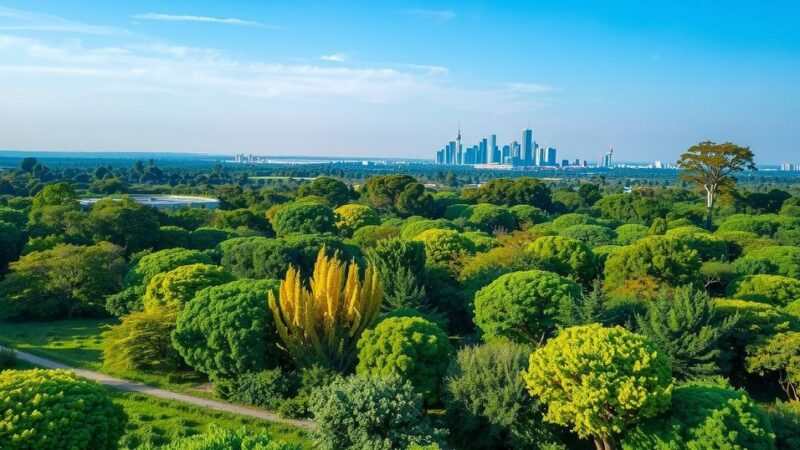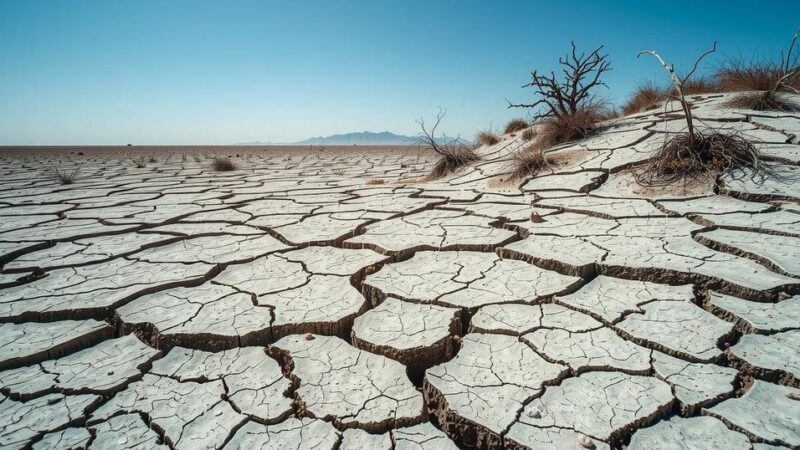Developing nations are urging wealthy countries to honor their promise of $20 billion annually for climate change funding at the COP16.2 summit in Rome. Nations are negotiating how to create a dedicated fund for biodiversity, as previous talks faltered over financing disputes. The urgency to protect ecosystems is emphasized amidst geopolitical tensions and the need for a cohesive financial plan ahead of the 2030 goals.
Developing nations implored wealthier countries to fulfill their commitments of providing $20 billion annually towards combating climate change as climate discussions commenced in Rome. This gathering, referred to as the “COP16.2” summit, follows the inconclusive UN COP16 talks in Colombia last year. Nations are now urged to unify efforts to safeguard life on Earth amid financial disputes that previously caused stagnation in negotiations.
More than two years have elapsed since a significant agreement to protect 30% of global land and oceans by 2030. Nations remain in negotiation over financial allocations necessary to counteract the environmental devastation threatening biodiversity. This week, at the UN Food and Agriculture Organization headquarters in Rome, delegates strive to bridge the gap between rich and developing nations regarding nature conservation funding.
The previous UN negotiations in Colombia ended without resolution due to disagreements over funding mechanisms. At the commencement of discussions in Rome, representatives from developing countries emphasized the importance of unblocking financial resources and ensuring wealthy nations honor their pledge to assist by 2025. Panama’s delegate asserted that without these funds, trust would erode, stating, “This is a matter of survival for ecosystems, economy and humanity. We cannot repeat the failures of climate finance.”
The climate dialogue comes during a period marked by global political instability, including economic anxieties and the impact of Russia’s aggression in Ukraine. Although the United States government has not ratified the UN’s Convention on Biological Diversity, a shift in funding priorities has raised concerns. In this context, COP16 President Susana Muhamad called for collaborative efforts, emphasizing the critical nature of sustaining life on Earth.
The talks resumed in a reduced format, with approximately 1,400 delegates present, far from the previous conference’s participation levels. Muhamad expressed cautious optimism, hoping that developments since the last meeting would pave the way for productive discussions in Rome. Countries are aiming to establish a framework for addressing the anticipated $200 billion in financing required for nature protection by 2030 while also considering the allocation of $30 billion annually to support developing nations.
Currently, about $15 billion was raised in 2022 to meet these goals. The focal point of the negotiations hinges on how funding is allocated. Developing nations, spearheaded by Brazil and the African bloc, advocate for a dedicated biodiversity fund, arguing their lack of representation in current mechanisms, whereas wealthier nations, including the EU, Japan, and Canada, caution against creating fragmented aid systems.
In response, the COP16 presidency has suggested postponing decisions about the new biodiversity fund while enhancing existing financing structures. Nations have identified 23 objectives aimed at combating deforestation, resource overuse, climate change, pollution, and biodiversity loss. Scientists have highlighted the significant costs associated with environmental degradation, emphasizing that the consequences of fossil fuels, agriculture, and fishing could amount to losses of up to $25 trillion annually, equivalent to a quarter of the global economy.
The aborted talks in Colombia symbolize a trend of disappointing outcomes for international climate summits, which have included inadequate climate finance agreements and stalled negotiations regarding desertification and plastic pollution. Focused action in Rome is imperative to avert repeating these failures and to make tangible progress in addressing the climate crisis.
In summary, the climate talks in Rome underscore the critical need for wealthy nations to fulfill their financial pledges to assist developing countries in combating climate change. The ongoing negotiations highlight the urgency of establishing effective funding mechanisms to ensure biodiversity and ecosystem protection. As global leaders convene at COP16.2, the hope remains that they will overcome previous disagreements and make meaningful progress in addressing the pressing environmental challenges facing the planet.
Original Source: www.france24.com






